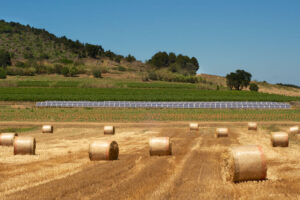Investing in a world with so many diverse choices can be intimidating. Each asset carries its own risk/reward profile, and there’s no one-stop source on how to safely make the most out of your money. It’s easy to put your money into opportunities that are familiar instead of investing in a complex industry like agriculture. Don’t let the potential learning curve scare you away from great returns in an asset class that helps feed, clothe, and fuel the world. Here are five tips to becoming a successful agriculture investor.
1) Educate Yourself
Agriculture economics isn’t a class most people took in high school or college, so don’t be embarrassed if it’s not a topic you know much about. Everyone eats and wears clothes connecting them to agriculture indirectly on a daily basis, but very few people have actually invested in the industry. Investors should focus on offerings that meet their risk tolerance and desired returns. When researching agriculture investment opportunities, take the time to learn about the product being grown or raised and the way returns are produced from a given agriculture operation. A quick google search is enough to distinguish what a hydroponic farm is versus a farm that grows row crops, and the various risks associated with each of those farming methods.
In the end, there’s no shame in realizing what you don’t know, so you should go to the professionals that do know. Like all investments, it’s best to consult with professionals to understand the future legal and tax implications.
2) Let Farmers & Ranchers Do What They Do Best
As a passive agriculture investor, you get to sit back and let the producers run their operation while you receive returns. The farmers and ranchers are experienced in what they do and highly vetted, so don’t worry about needing to offer crop growing advice or helping them out with their business plan. There’s also no stress over buying and selling, like with stocks and bonds, because agriculture investments tend to be for a defined or targeted duration, which can range between two to ten years, or even longer.
3) Give Your Long-Term Investment Patience
Long-term investments in agriculture can be illiquid. Depending upon the crop type and way the offering is structured, it may take years to see production and returns. For example, it takes pecan trees three to four years to produce pecans, reaching full production in their ninth or tenth year. Specialty agriculture investments are designed to be non-correlated with the stock market and not necessarily dependent on variability in commodity prices, so one doesn’t have to worry about day-to-day fluctuations in the corn or pork belly markets. Your patience with agriculture investments will make you a less emotional, stronger investor overall.
4) Invest in Your Beliefs
Typically, consumers have a preference in what they buy and consume based upon their beliefs. Investments in agriculture give investors a chance to support products or growing practices they are passionate about. For example, an investor may prefer to put their money in an organic, grass-fed beef operation because they try to avoid GMOs or grain-finished beef. People may like hydroponics because it saves water. Others may invest in a frontier market because the farm values its laborers with job training and a zero gender wage gap. Agriculture investors have a great opportunity to grow their wealth while making an impact in investments they personally value.
5) Keep Your Eyes Peeled
There are plenty of quality investment opportunities out there. Know where to find those deals and the frequency in which they are available. For example, the Harvest Returns agriculture investing platform is consistently updated with new private agriculture investments, and close fairly quickly. You don’t want to miss out on a deal by being too late to the game.
This content may not be used or reproduced in any manner whatsoever, in part or in whole, without written permission of LANDTHINK. Use of this content without permission is a violation of federal copyright law. The articles, posts, comments, opinions and information provided by LANDTHINK are for informational and research purposes only and DOES NOT substitute or coincide with the advice of an attorney, accountant, real estate broker or any other licensed real estate professional. LANDTHINK strongly advises visitors and readers to seek their own professional guidance and advice related to buying, investing in or selling real estate.










Add Comment